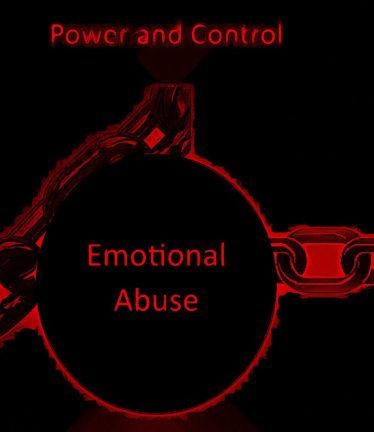Signs of emotional abuse: Control, manipulation, isolation, bullying, pressure, harassment, insult, and criticism; undermining, demeaning, blaming, threatening, and making all the decisions without your partner.
Emotional abuse is a deeply distressing and often hidden form of mistreatment that can have profound and long-lasting effects on a person's mental and emotional well-being. Unlike physical abuse, emotional abuse leaves no visible scars, making it challenging to detect. It can occur in various settings, such as personal relationships, families, workplaces, or even in broader social contexts. Understanding the signs, consequences, and pathways to healing from emotional abuse is essential for those who have experienced it.
Understanding Emotional Abuse:
Emotional abuse encompasses a range of harmful behaviours aimed at controlling, belittling, or demeaning another person. These behaviours can take the form of constant criticism, manipulation, humiliation, or isolation. Emotional abuse is about power and control, with the abuser using tactics to undermine the victim's self-esteem and independence.
Recognising the Signs:
Identifying emotional abuse can be challenging, as it often occurs gradually and the victim may downplay or normalise the behaviour. Common signs include frequent insults, name-calling, gaslighting (making the victim doubt their reality), and isolation from friends and family. It's essential to trust your feelings and seek support if you suspect you are experiencing emotional abuse.
The Impact on Mental Health:
Emotional abuse can have severe consequences for a person's mental and emotional well-being. Victims often experience anxiety, depression, low self-esteem, and a distorted self-image. The long-term effects can extend into adulthood, impacting one's ability to form healthy relationships and navigate life's challenges.
Breaking the Silence
One of the most challenging aspects of emotional abuse is the silence that often surrounds it. Victims may feel ashamed, embarrassed, or afraid to speak out. However, breaking the silence is a crucial step towards healing. Reach out to a trusted friend, family member, therapist, or support group to share your experiences.
Seeking Professional Help:
Healing from emotional abuse often requires professional support. Therapy, such as cognitive-behavioural therapy (CBT) or trauma-focused therapy, can help individuals process their experiences, rebuild self-esteem, and develop healthy coping strategies.
Self-Care and Self-Compassion:
Self-care is essential in the recovery process. Focus on nurturing your physical and emotional well-being through activities you enjoy, such as exercise, meditation, or creative outlets. Practicing self-compassion is also vital; remind yourself that you deserve love, respect, and kindness.
Setting Boundaries:
Learning to set and enforce boundaries is a crucial aspect of healing. Boundaries protect your emotional well-being and signal to others that mistreatment will not be tolerated. It's okay to say "no" to toxic relationships or situations.
Empowerment and Resilience:
Overcoming emotional abuse is a journey towards empowerment and resilience. It's about reclaiming your sense of self-worth, rebuilding your life, and fostering healthy connections. You have the strength to heal and thrive.
Conclusion:
Emotional abuse may leave invisible wounds, but it is entirely possible to heal and move forward. Recognising the signs, breaking the silence, seeking support, and practicing self-care are essential steps on the path to recovery. Remember that you are not alone, and there is hope for a brighter, emotionally healthier future beyond the shadow of emotional abuse

